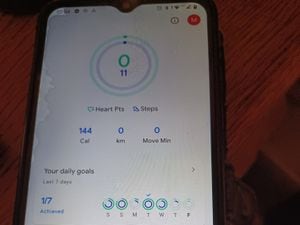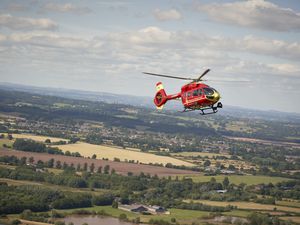Future Fit: Key document shows impact changes will have on ambulance services
More than 140 extra ambulance hours a week will be needed to cope with plans to place Shropshire’s only emergency centre in Shrewsbury, a new report has revealed.

A key document has been published ahead of the decision making meeting on Future Fit on Tuesday.
The decision making business case, which has been published at nhsfuturefit.org, will support a 15-person panel in making its decision on the future of the county's hospitals.
It brings together the work carried out on the programme for the past six years and also reveals what impact any changes will have on ambulance services.
Consultancy firm Operational Research in Health Ltd (ORH) looked at the possibilities of what would happen if a single emergency centre was based in Telford, or Shrewsbury – the preferred option by Shropshire and Telford & Wrekin Clinical Commissioning Groups.
It found under option one – siting the emergency centre in Shrewsbury – West Midlands Ambulance Service (WMAS) would need to cope with 144 additional ambulance hours per week.
Under option two, its ambulances would have to cater for 90 additional hours a week and the Welsh Ambulance Service (WAST) an additional 32 hours.
The report says: "WMAS is affected by option one more than option two.
"WAST is unaffected by option one but will be impacted by option two where the Princess Royal Hospital provides emergency care, creating a longer travel time for patients from Mid Wales.
"However, overall the impact of implementing either option is very similar when looked at in terms of total emergency medical services into the county of Shropshire e.g. 144 hours where Royal Shrewsbury Hospital provides emergency care or 122 hours where PRH provides emergency care."
The document says that whilst there may be longer journey times under option one, WMAS says it could improve turnaround times for ambulance crews and, as a result, improve performance standards.
Ambulance bosses today said they have been assured health bosses will commission the right levels of service provision to ensure patients are safe.
Mark Docherty, WMAS director of clinical commissioning, said: “WMAS has been fully involved throughout the Future Fit process and fully support the work carried out by ORH into the additional ambulance resources that will be required whichever option is chosen by commissioners.
“We are assured that, under either option, the CCGs would commission the right level of service provision to maintain patient safety and standards of care.
"We would support the view that making the changes would result in an improved flow of patients which should help to improve the turnaround times for ambulance crews and, increase ambulance availability, which can only be good for patients.”
The key document makes seven recommendations to the joint committee to receive and approve.
It will include confirming a robust public consultation process has been undertaken, as well as making a final decision.
The committee will meet at Harper Adams University, near Newport, at 6.30pm on Tuesday.





